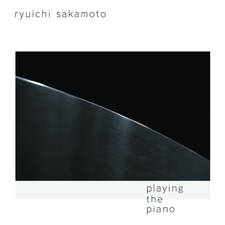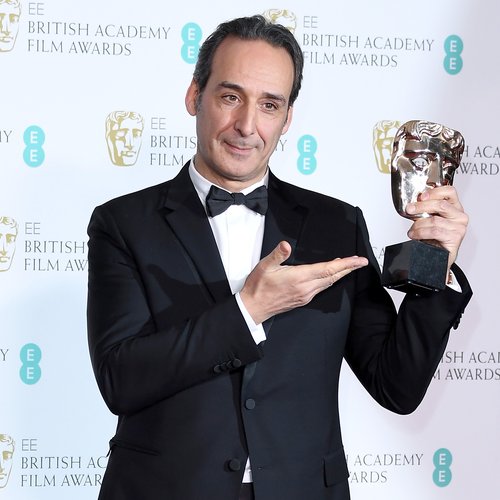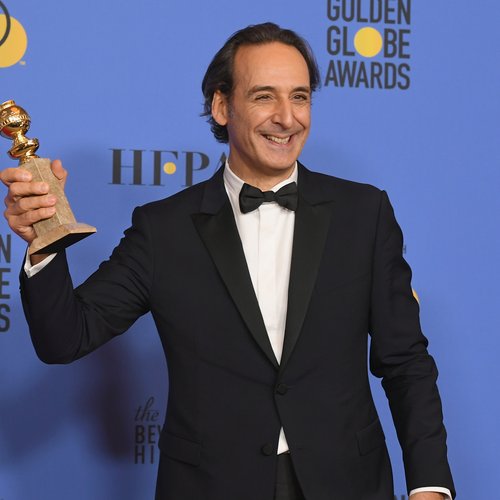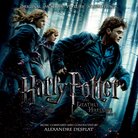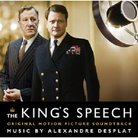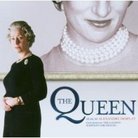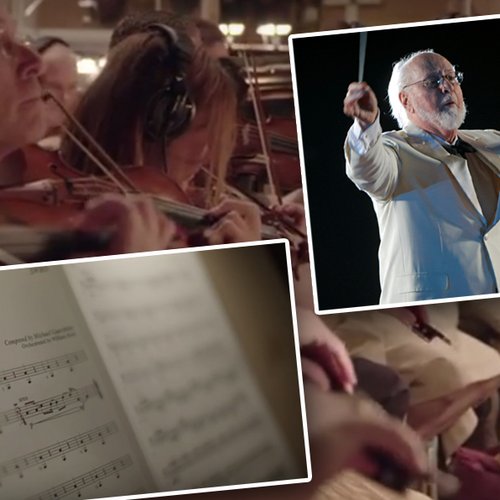Alexandre Desplat - Philomena OST: an album guide
The French soundtrack specialist Alexandre Desplat garners another Oscar nomination for his score to Philomena, the true story of how one Irish woman's (Judi Dench) quest to find her long-lost son, along with journalist Martin Sixsmith (Steve Coogan).
-
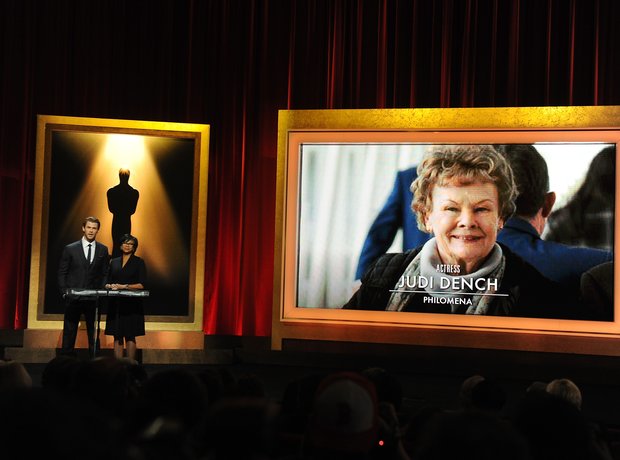
1. Philomena
Desplat has a fine line in delicate intrigue with many of his soundtracks, and this lightly bobbing main theme uses the flute beautifully to bring out the more mysterious elements of the incredible story. Here's the moment when Judi Dench was nominated for the Best Actress Oscar.
-
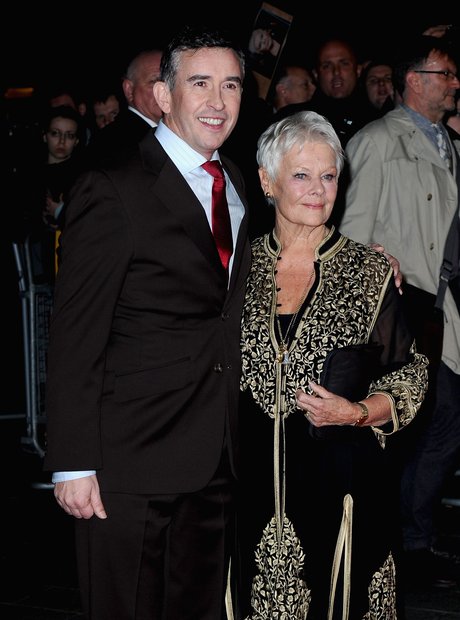
2. Martin
The main foil and central relationship at the heart of the drama in Philomena is Martin Sixsmith (the film is based on his book that details Philomena's struggle and his role in the drama). His theme, again, delicately realised, is classic Desplat mood-making.
-
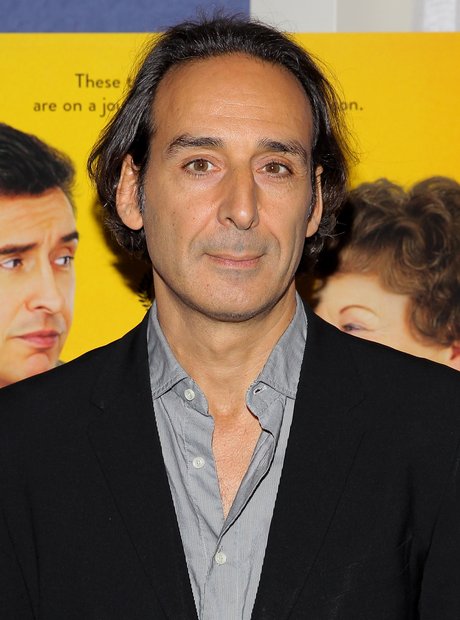
3. Birth
Desplat's plinking piano is at the centre of much of this ruminative score, which has echoes of Thomas Newman's finest work. Here's Alexandre himself, pictured at Philomena's premiere.
-
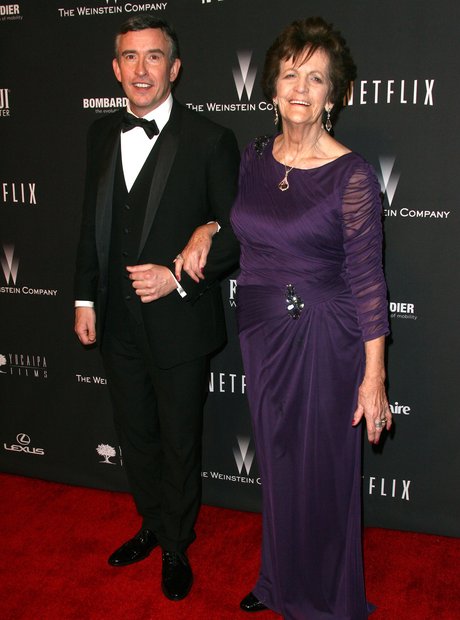
4. Laundry
Tension increases throughout the early portion of the film as Martin Sixsmith (Steve Coogan) begins to get drawn into Philomena Lee's (Judi Dench) plight, and joins her in trying to find her long-lost son. Here's Coogan with the real Philomena Lee.
-
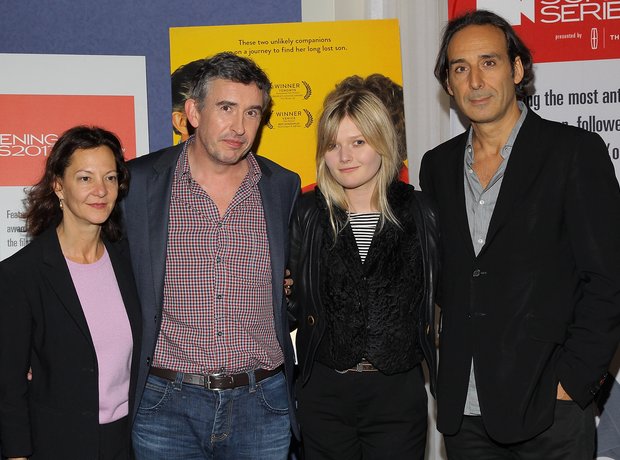
5. Adoption
The search takes Philomena and Martin to a convent, where she believes her son was resident after she gave him up for adoption. However, the pair receive some startling news, which Desplat scores sensitively with barely-audible woodwind chords and gentle acoustic guitar.
-
-
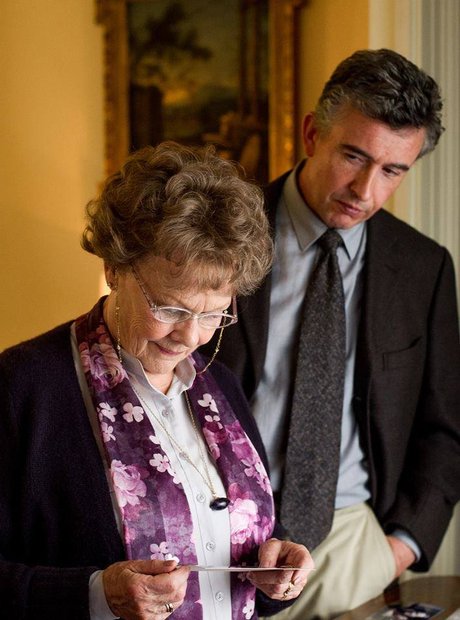
6. Drives to Roscrea
A sweeping opening soon yields to ponderous chords, reflecting the ongoing confusion in the movie's plot. Desplat is a master of creating gentle unease in his scores, so he takes the opportunity here to ramp it up.
-
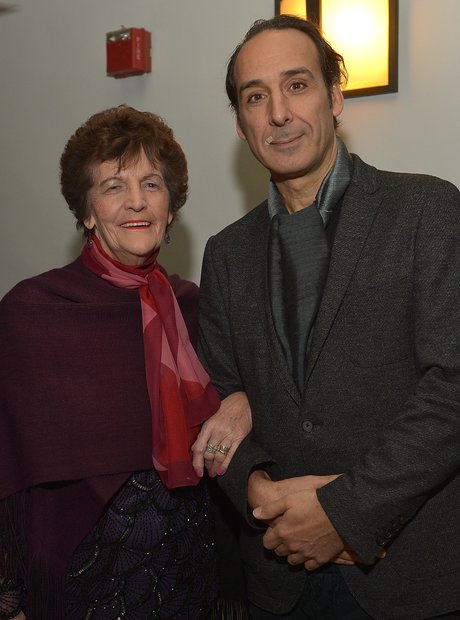
7. Reminiscence
In keeping with the track's title, this is a calm moment amongst the storm of uncertainty in Desplat's score. Here's the composer himself with the real Philomena Lee, and some cracking neckwear.
-
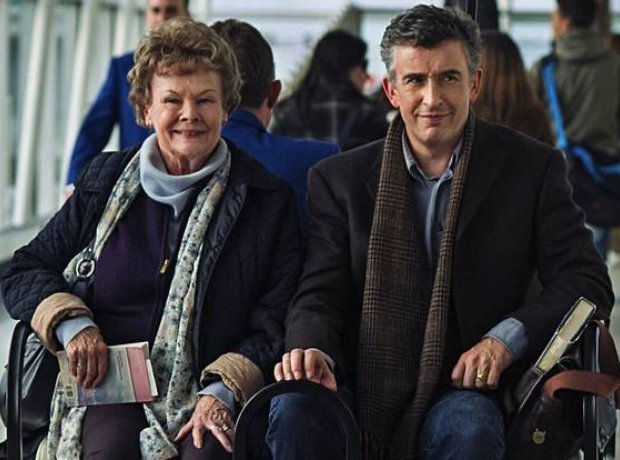
8. Airport
The intrepid two now plan their next move, to the accompaniment of a light piano theme and, interestingly, a clean dash of jazzy electric guitar.
-

9. Landing in the USA
There's a sense of warmth as Philomena and Martin arrive in America to discover more about her long-lost son, conveyed by Desplat with high-register strings and gently undulating woodwinds.
-
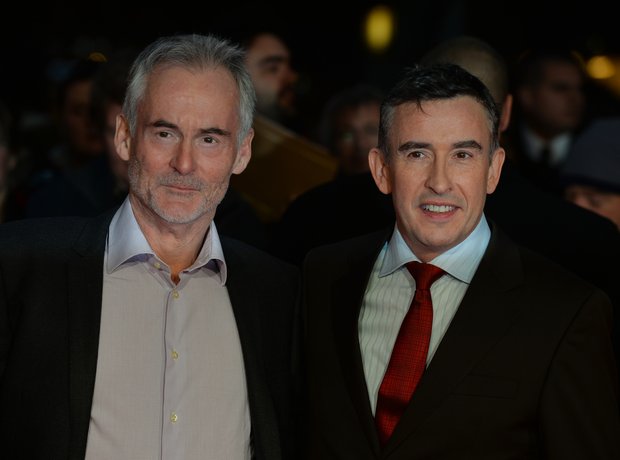
10. Discovering Michael
A key moment in the film where everything Philomena thought she knew about her son is turned upside down - Desplat uses the action on screen to develop a quiet discomfort with a harp line that never seems to resolve itself. Here's Steve Coogan with the real Martin Sixsmith.
-
-
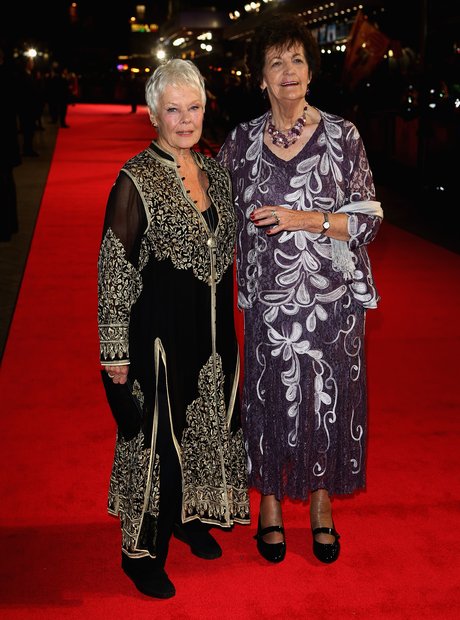
11. Mary
Mary is a fundamental character in the story here, and she gives Philomena some key news about her son. It is, however, tinged with hope and confusion, something that Desplat dramatically brings out in the score.
-
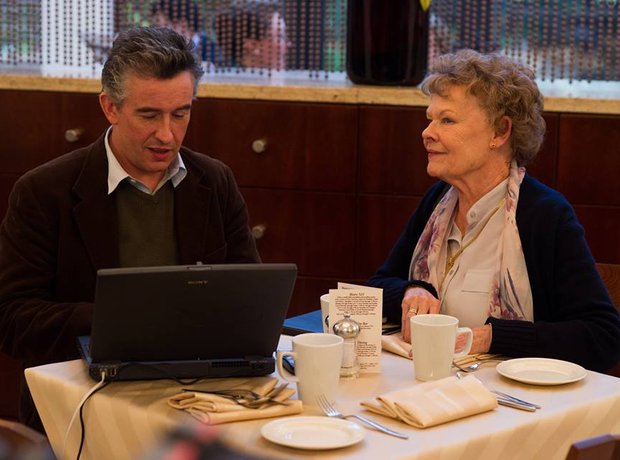
12. Confession
Catholic iconography is so important to the film and, therefore, the soundtrack - Confession being a prime example.
-
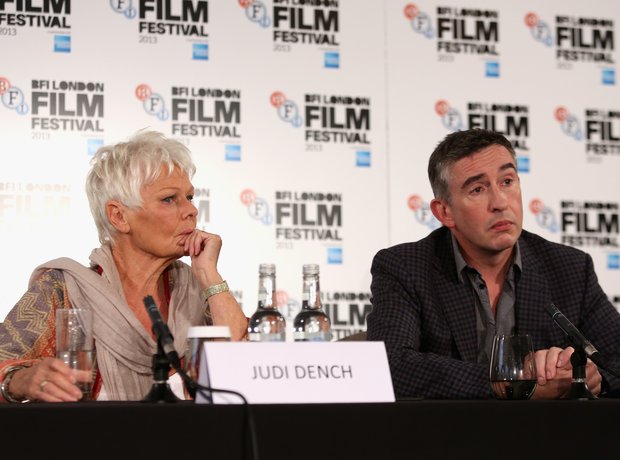
13. Memories
Aptly, sweeping echoes of previous themes seep into Memories. This is a film where memory and reality are important concepts, and Desplat uses the score to subtly tease them into life.
-
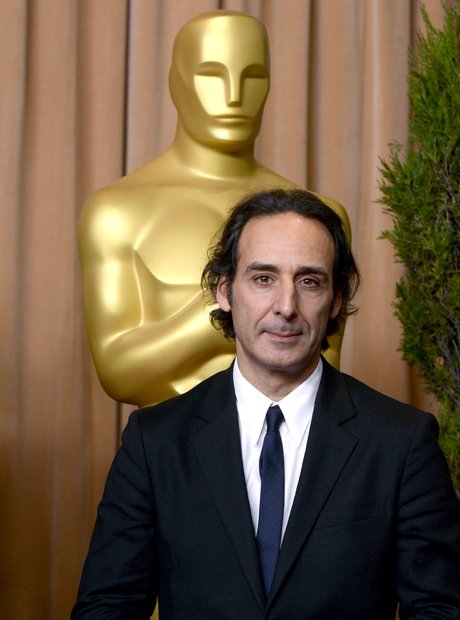
14. No Thought Of Ireland
Ireland is a central location in the drama of Philomena, for various reasons. Here, Desplat turns the score into a darkly quiet exploration, with low strings rumbling below, and only the merest pluck of a harp to add any kind of rhythmic variation.
-
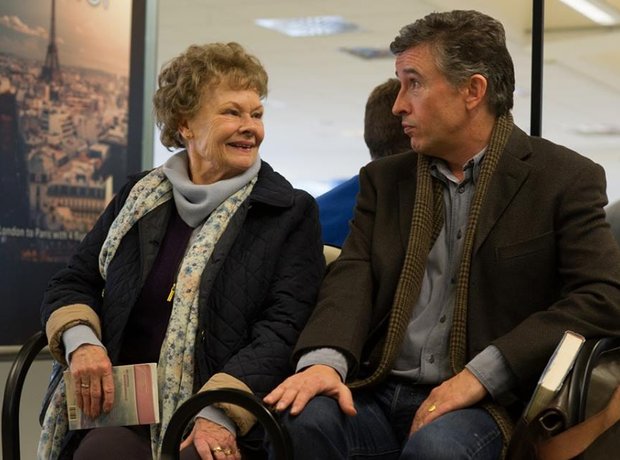
15. Quiet Time, To Pete's
Things brighten here, though, albeit only slightly. The score's new ponderous guise is the perfect accompaniment to the drama, as the emotionally confusing and surprising denouement begins to reveal itself to Martin and Philomena.
-
-
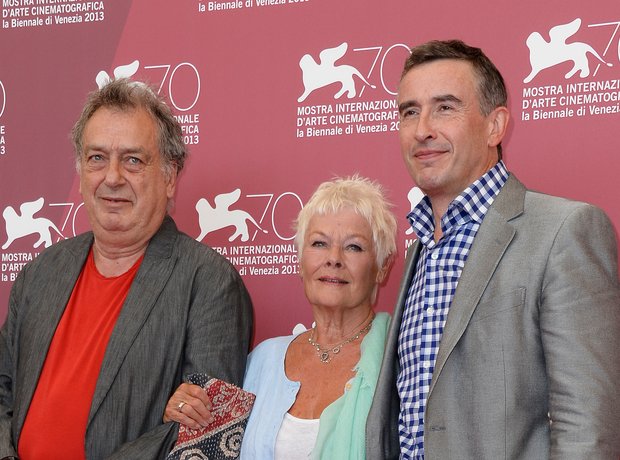
16. Anthony's Story
Philomena finds out some key information regarding her son from Anthony (no spoilers, promise…), and Desplat reacts with a gently descending chord progression with impeccably arranged xylophone and strings floating gracefully over the top.
-
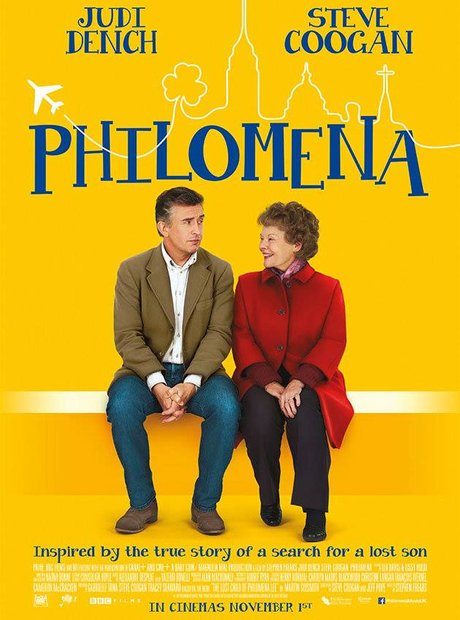
17. Sister Hildegarde
Inevitably, the action returns to the convent, where Philomena is in desperate need of some answers. The nature of those answers influences the score profoundly, which turns to a nervous series of unanswered melodic questions, and cadences that never seem to quite resolve.
-
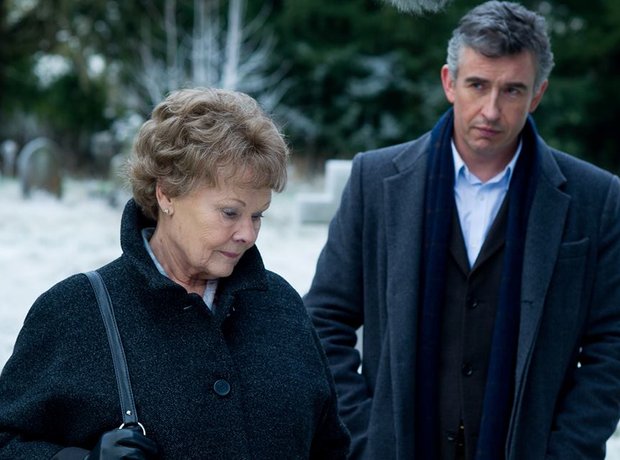
18. Farewell
There are plenty of goodbyes to say at the end of the film, and not all of them fond - there's a hint of unease here, as with much of Desplat's score, which suggests that not every loose end has been completely tied up.
-

19. Fairground Carousel
A melancholy waltz lifted directly from the fairground finishes off this superbly sensitive score. Fairground music does always have that background of malice or spookiness synonymous with being a child terrified of the rides, and Desplat is sure to use it wisely here.
